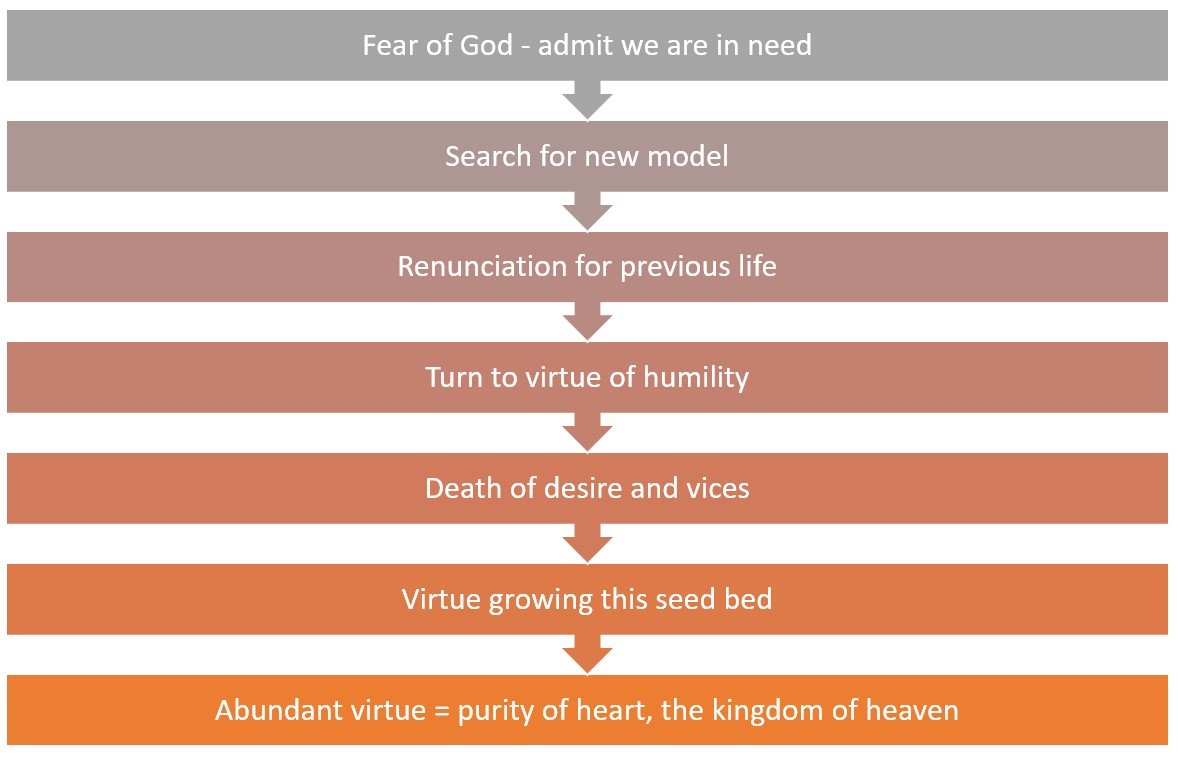When I was younger I played soccer. I was above average, but no Messi. Becoming a soccer player required training: first I had to learn to dribble, then pass, then trap the ball, then pass with accuracy, then shoot, then learn to play with others, read the field, see the space, formations, timing, etc. This training took years to get decent at. Countless hours a week with coaches and others in practice and games.
And that was just something as simple as soccer.
Becoming a Christian requires more training than we are want to believe. (We forget that the disciple were with Jesus all the time for three years and they still did not get it.)
What is the training of a Christian?
John Cassian suggests that there is a training process that one engages to develop into a Christian. In the the fourth book of The Institutes he describes this process:
First it begins with the fear of the Lord that is the beginning of wisdom (Proverbs 9:10). What this means is that one must come first to see they are in need. To put it another way, the fear of the Lord means that we admit that the current models of our lives are leading us poorly and we need a new model to guide our lives.
We cannot adopt a new model while holding onto our original model. We cannot worship two gods (Matthew 6:24). This is why we must renounce our first models/gods. We must repent. This repentance is total. It is a repentance of all the objects, values, teachings and ways of the original model. It is impossible to learn a new life while holding onto the “way we used to do it”. It would be like learning to play basketball while still using a soccer players mindset, skills, tools and techniques. It does not work that way.
When we renounce our previous ways/models we are like a beginner. And there is nothing more humbling than being a beginner at anything. Which may be why we do not repent or renounce totally. We hold on to some things so we are not tossed into beginner status. However, when we are able to renounce/repent our previous life, dreams and desires fall away and die.
As Jesus said that a seed must fall to the ground and die in order to grow (John 12:24). When our old ways and models have died, then we are able to receive what the new model has for us. This new model, Christ, trains us in virtues that produce the fruits of the spirit - love, joy, peace, patience, kindness, generosity, faithfulness, gentleness, self-control.
The person who produces such fruits of the spirit has an altogether new heart, what we might call the purity of heart. It is, as Jesus says, the pure in heart that see God (Matthew 5:8).
This training takes a lifetime and it is not easy. It breaks us down into being a new creation (2 Corinthians 5:17). In this training, you may see that this does not begin by training people to just be better humans. It does not start with behavior modification to be more loving or kind or forgiving. It understands that we are unable to be loving, kind and forgiving as long as we living out of a sense of self and without seeing that we are in need. Without seeing that we are in fact in need we will reserve our love, mercy and forgiveness for only those who “deserve” or “earn” or who are “worthy”. Until we repent and renounce this way of living, we will not see God.
We will just see ourselves as god.




